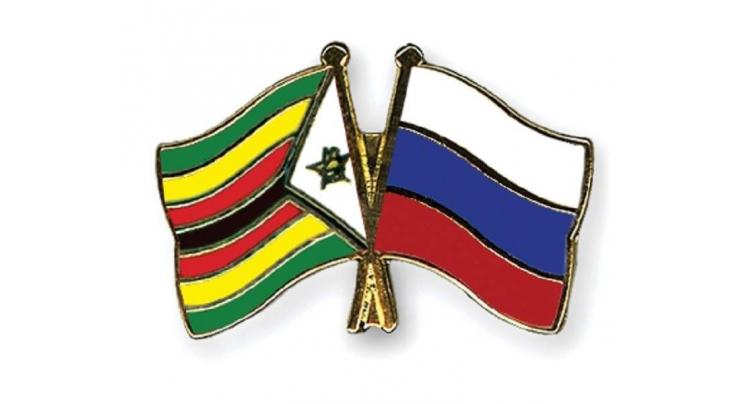
- Home
- World
- News
- Zimbabwe Looks for More Funding From Russia to Tackle Climate Change -Environment Official
Zimbabwe Looks For More Funding From Russia To Tackle Climate Change -Environment Official
Umer Jamshaid Published December 13, 2018 | 06:48 PM

Zimbabwe hopes that Russia will provide the country with more funds to help the country go green, Washington Zhakata, the director of the climate change management department at Zimbabwe's ministry of lands, agriculture, water, climate and rural resettlement told Sputnik on the sidelines of COP24 on Wednesday.
Zhakata also expressed gratitude to Russia over allocation of $1 million for development of Zimbabwe's Low Emission Development Strategy that will make it possible to review the country's Nationally Determined Contributions (NDCs) for implementation of Paris Agreement.
"It would be a pleasure to have more financing from the Russian government. This is the first type of funds we have received from Russia. So, we hope, if we come up with the right outcomes of this program, then it will generate more interest for Russia to now invest in clear demonstration projects in order for us to go green because this is an issue of going green as a country," Zhakata said.
Vangelis Peter Haritatos, Zimbabwe's deputy minister of lands, agriculture, water, climate and rural resettlement told Sputnik that Russia has played a positive role in Zimbabwe adding that "it is good to be friends" with Moscow.
COP24 is taking place on December 2-14 in the Polish city of Katowice. The main goal of the conference participants is to discuss ways of implementing the 2015 Paris Agreement on climate change.
The Paris climate deal, created within the UN Framework Convention on Climate Change, went into force on November 4, 2016. It has been ratified by 184 of the 197 parties to the accord. The deal aims to keep the increase in average global temperature at below 2 degrees Celsius (3.6 degrees Fahrenheit) above pre-industrial levels by means of reducing greenhouse gas emissions.
Related Topics
Recent Stories

President Raisi leaves for Iran from Karachi

Currency Rate In Pakistan - Dollar, Euro, Pound, Riyal Rates On 24 April 2024

Today Gold Rate in Pakistan 24 April 2024

Punjab CM inaugurates Pakistan’s first Virtual Women Police Station

Dutch model Donny Roelvink embraces Islam

Experts raise concerns over introduction of 10-stick packs

Iranian president arrives in Karachi

Law Minister expresses Govt's resolve to address issue of missing persons

Rizwan’s batting order may be changed: Sources

Nawaz Sharif to visit Guangzhou exhibition in China

FM Dar not traveling to China: Foreign Office

PM takes notice of deliberate delay in tax cases
More Stories From World
-
Israel says US military aid sends 'strong message' to enemies
40 minutes ago -
Under stress of war, gambling grips Ukrainian soldiers
60 minutes ago -
Long-delayed Ukraine aid clears US Congress, awaits Biden signature
1 hour ago -
Up the Congo River on an eventful voyage aboard 'God's Miracle'
1 hour ago -
A 'healthy addiction': sea saunas make waves in Ireland
1 hour ago -
Victims of China floods race to salvage property
2 hours ago
-
China to send fresh crew to Tiangong space station
2 hours ago -
Norman says McIlroy welcome on LIV Tour, but denies any offer
2 hours ago -
China, future HQ: New ASML boss faces bulging in-tray
2 hours ago -
Trump meets former Japanese prime minister in New York
2 hours ago -
'Catch and Kill' architect details Trump-boosting scheme
2 hours ago -
Wolves overpower Suns to lead series 2-0, Pacers down Bucks
2 hours ago